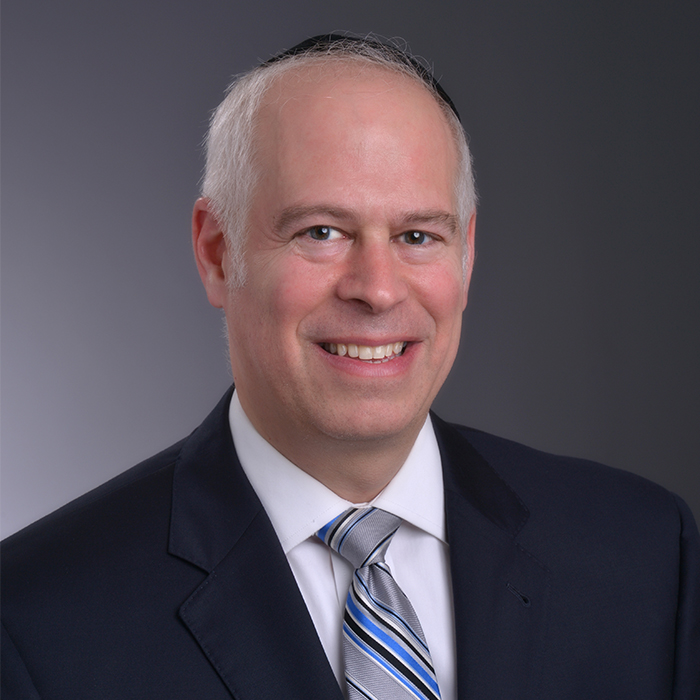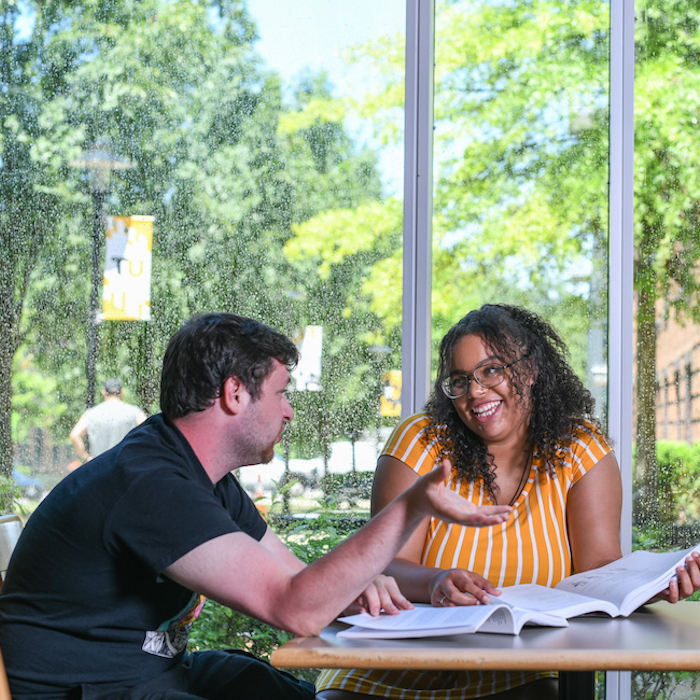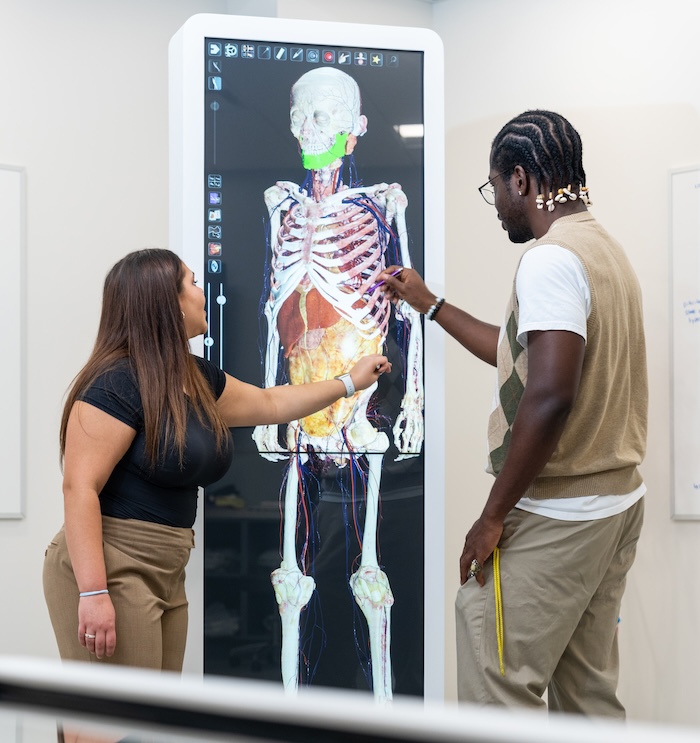Our Mission and Values
Our division’s mission and values provide a uniting force for the work we do and the ways we do it.

From developing technology to support classroom learning to maintaining a balanced budget amid a statewide shortfall, the Division of Administration and Finance spent fiscal year 2024 working to advance Towson University and its strategic plan goals. This page highlights a few of our key strategic achievements in the areas of student success, campus and community support, technology impact and innovation and financial stability stewardship.
For each of our highlighted successes, there are many others that receive little attention but make a real impact: the students who can stay on track for graduation because of our tuition payment plan; the faculty members whose research presentations shine as a result of our technical support; the staff whose operating budgets go farther because of purchasing agreements negotiated by Procurement.
Our division’s work is often behind the scenes. But as you read the highlights of our work, you’ll see that it truly makes a difference to our campus community.
I remain very honored and proud to serve as the leader of this amazing division which is an important part of a university that does so much for the public good. Go Tigers!
Ben Lowenthal
Senior Vice President for Finance and Chief Fiscal Officer
Student billing service calls resolved
Attempts to infiltrate TU's network thwarted
Purchase order spending processed

A new collaboration with enrollment management offers a payment plan option that enables students with balances between $250.01 and $500.00 the flexibility to register while settling previous semester charges. Less than 1% of TU’s students had schedules canceled for nonpayment in spring 2024. This marks a 62.5% decrease from fall 2023.
To enhance the student experience, A&F led the transition to a new dining services provider (Aramark) and pouring rights provider (Coke). We established the newest campus dining franchise, Denny’s, and opened a 24/7 autonomous convenience store to offer students an option for late-night study snacks. TU’s first late night dining option has been a big success, with 21% of purchases made when the rest of the area’s dining facilities are closed. Tiger Express is the highest grossing Aramark store in college campuses.

Traveling can be both enriching and stress-inducing. To make it easier for faculty, staff and students, the Business Travel Office simplified its processes this year. Paper forms were replaced with electronic versions for easier routing and tracking, the travel manual and website were updated to be simpler and easier to navigate, and office hours were implemented to give travelers hands-on, drop-in assistance with trained travel office advisors. The updates have improved compliance with travel policies while ensuring students, faculty and staff are reimbursed for travel in a timely manner.
Buying local strengthens TU’s position as an anchor institution and helps meet state requirements. To better harness TU’s buying power for the public good, this year the Procurement Office launched the Buy Better Challenge: a contest encouraging P-card holders to use local, minority and veteran-owned businesses. To support the challenge, Procurement created a resource list of applicable vendors and held the first small, minority and veteran-owned business vendor fair. The concerted effort resulted in increased percentages spent with local, minority and veteran-owned businesses.
In on-time invoices among USM institutions using Oracle
Total operating budget
Public audit findings

In 2024, the Office of Technology Services implemented new and innovative systems to support student enrollment and success. They helped launch Slate for undergraduate admissions, increasing transparency, data and insights into prospective students and successful strategies for enrolling them. In addition, the completed transition to Blackboard Learn Ultra began offering students and faculty a more mobile friendly, accessible and easier to navigate learning management system. Since the move to Ultra began, TU's Blackboard team has held 275+ workshops, help sessions and tabling events to support students and faculty in using the new system.
To achieve a Research II (R2) Carnegie Classification, TU’s technology infrastructure must be ready to accommodate additional research. Projects like the planned and installed critical infrastructure support in the new CHP building and renovations of the Union and Smith Hall allow for just that, enabling more innovative student spaces that support research goals.
The creation of a refined Student Technology Fee program will support sustainability and build our campus technology infrastructure. In 2024, OTS worked on 58 help requests for research including R2 project and proofs of concept work, logging about 300 hours of time and serving at least 21 different departments.

This year, the University Budget Office implemented a mid-year budget forecast enabling closer alignment with divisional budget officers for reviewing and forecasting auxiliary cost centers. The new process engages staff closely connected with the divisions in more detailed forecasts and reviews, helping ensure TU is on track to meet its budget. The mid-year forecasting will be expanded in FY 25 to a quarterly review that also includes state-funded cost centers.
A&F is leading two major projects to streamline TU's financial processes: the Central Payroll Bureau (CPB) Integration and the Human Capital Management (HCM) Discovery project. The CPB integration will enable more automated financial processes, while the HCM project will connect payroll processes with organizational data in a more modern enviroment. The completion of these discovery projects sets the stage for enhanced collaboration and informed decision-making, marking a pivotal advancement in institutional efficiency.
In fiscal year 2024, A&F continued to refine its modern business platform and budget planning system, Stratus. We simplified reporting through the development of Campus and Core office reporting dashboards, creating a one-stop-shop for selecting reports. We also created a team to implement and monitor a ticket-based Stratus help desk.